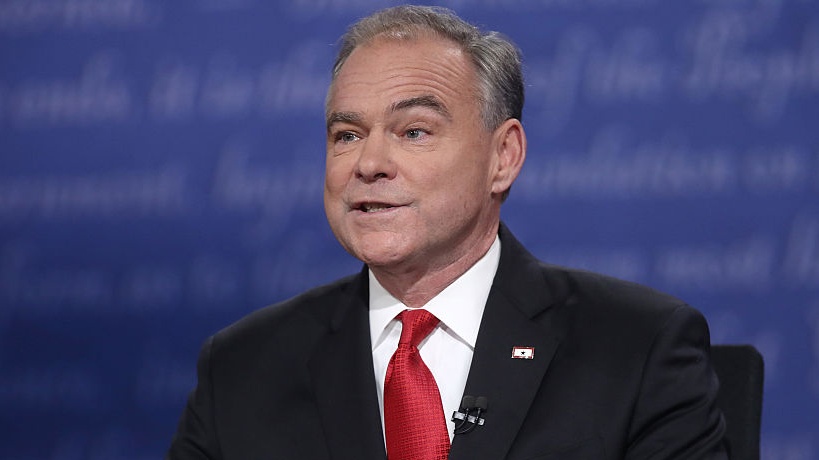Since Democratic presidential candidate Joe Biden announced that he would likely be choosing a woman as his running mate, the potential candidates have faced a barrage of racist, sexist abuse from both sides of the political aisle.
Virginia Sen. Tim Kaine, who served as Hillary Clinton's running mate in 2016, spoke on ABC News' Powerhouse Politics podcast about the sexism women face when running for office and about how the vice president vetting process has become generally burdensome.
"The hardest part of being on the ticket with Hillary in 2016 was just the endless display of outright misogyny or subtle double standards that demonstrated to me — absolutely clearly — why we haven't had a woman president and why the United States has still such a poor track record of electing women to national legislative office," Kaine said.
California Sen. Kamala Harris has faced particularly pointed criticism from members of Biden's own team who have said she is too ambitious and will be looking to take the top spot if she is chosen as his running mate, CNBC reported.
"The ambition theme that's popped up in recent weeks is just a sad part of what I saw with Hillary running for president in 2016. We have a double standard for women," Kaine said.
He went on to speak about the stress of the vetting process and the cruelty of having your worst moments chewed on by the media. For the Black women being vetted by Biden's team, the past few weeks have been rough.
Georgia gubernatorial candidate Stacey Abrams, Congresswoman Karen Bass, Atlanta Mayor Keisha Lance Bottoms, Congresswoman Val Demings and Harris have all had unflattering quotes or stories spotlighted in the national media. Reporters have pored over Demings' past as a police chief while decades-old comments about Fidel Castro have been used to bash Bass.
"You're out on a diving board — kind of by yourself — and if anybody has an arrow they're going to fire at you, the campaign kind of wants to see it fire. They want to know what's out there and they want to know how you respond. They want to know, 'Do voters think this is a serious issue or is that so minor, who cares about that?'" Kaine said.
"You want any of those arrows fired before you name somebody rather than after. Let's make sure we understand all the downsides that everybody has because everybody has them. Let's make sure we understand them all before we make a pick," he added.
A group of prominent Black women came together this week to call out the treatment that the Black women in the running for the vice president spot have faced, demanding that both sides tamp down the racist abuse, as Blavity previously reported.
Kaine called the process necessary but said it took a toll on him. It was particularly difficult because the attacks, he explained, were coming from reporters, the Republican Party and people within the vetting committee.
Sometimes stories in the media are intentionally published to see how a candidate would respond to something damaging or painful from their past, Kaine told the podcast hosts.
"Negatives come out from every different direction. They come out from enterprising reporters. They come out from — sometimes the candidates themselves want them out there so it's not a surprise later. They definitely come out from rivals. And sometimes the campaign itself," Kaine said.
"It may kind of be a new norm to put people through a very public tryout for some extended period of time to see how they stand up to that," he noted.
